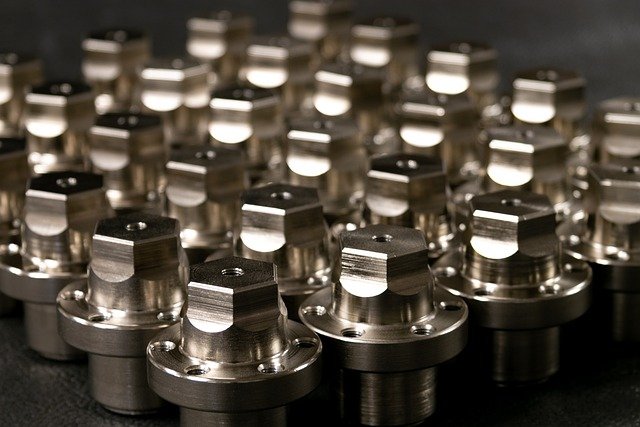Fermentation in Skincare: The Science of Probiotic Beauty
In the ever-evolving world of beauty and skincare, a surprising trend has emerged from an unexpected source: the humble process of fermentation. Long associated with culinary delights like kimchi, kombucha, and sourdough bread, fermentation is now making waves in the beauty industry. This ancient technique, once reserved for preserving foods, is being harnessed to create potent skincare formulations that promise to revolutionize our approach to skin health. As consumers increasingly seek natural, effective solutions for their skincare concerns, fermented ingredients are stepping into the spotlight, offering a unique blend of tradition and cutting-edge science.

The Science Behind Fermentation in Skincare
At its core, fermentation is a metabolic process where microorganisms break down complex compounds into simpler ones. In the context of skincare, this process can yield several benefits. When ingredients like herbs, fruits, or grains are fermented, their molecular structure is altered, often resulting in smaller molecules that can penetrate the skin more easily. Additionally, the fermentation process can increase the concentration of beneficial compounds, such as antioxidants, vitamins, and amino acids, making the ingredients more potent and bioavailable.
Key Benefits of Fermented Skincare Ingredients
Fermented skincare ingredients offer a multitude of benefits that set them apart from their non-fermented counterparts. Firstly, the enhanced absorption capabilities mean that active ingredients can penetrate deeper into the skin, potentially leading to more effective results. Secondly, the fermentation process can create new beneficial compounds, such as organic acids, which can help to balance the skin’s pH and support its natural barrier function. Moreover, fermented ingredients often have a lower molecular weight, making them less likely to cause irritation, which is particularly beneficial for those with sensitive skin.
Popular Fermented Ingredients in Skincare
The world of fermented skincare is vast and varied, with formulators experimenting with a wide range of ingredients. Some of the most popular fermented ingredients include:
-
Saccharomyces ferment filtrate: Often derived from yeast, this ingredient is known for its moisturizing and anti-aging properties.
-
Lactobacillus ferment: This probiotic ingredient can help to strengthen the skin’s barrier function and improve overall skin health.
-
Fermented rice water: Rich in vitamins and minerals, it’s believed to brighten the complexion and improve skin texture.
-
Galactomyces ferment filtrate: A byproduct of sake fermentation, this ingredient is prized for its ability to improve skin elasticity and hydration.
The Role of Probiotics in Fermented Skincare
One of the most exciting aspects of fermented skincare is its connection to the growing field of probiotic beauty. The fermentation process often involves beneficial bacteria, which can contribute to the skin’s microbiome - the complex ecosystem of microorganisms that live on our skin. A healthy skin microbiome is crucial for maintaining skin health, as it helps to protect against pathogens, regulate inflammation, and support the skin’s barrier function. Fermented skincare products can potentially introduce beneficial bacteria to the skin or provide nutrients that support the existing microbiome, leading to healthier, more resilient skin.
Challenges and Considerations in Fermented Skincare
While the potential benefits of fermented skincare are exciting, it’s important to approach this trend with a critical eye. One challenge in the industry is the lack of standardization in fermentation processes, which can lead to variability in product efficacy. Additionally, while many fermented ingredients are well-tolerated, some individuals may experience sensitivities or allergic reactions, particularly to products containing live bacteria. As with any new skincare product, it’s crucial to patch test and introduce fermented products gradually into your routine.
The Future of Fermented Beauty
As research in this field continues to expand, we can expect to see further innovations in fermented skincare. Scientists are exploring new fermentation techniques, such as co-fermentation (fermenting multiple ingredients together) and the use of novel microorganisms to create even more potent and targeted skincare solutions. Moreover, the intersection of fermented skincare with other emerging trends, such as personalized skincare and sustainability, promises to yield exciting developments in the coming years.
Incorporating Fermented Skincare into Your Routine
For those interested in exploring the world of fermented skincare, there are numerous options available. From fermented essences and serums to moisturizers and masks, these products can be incorporated into various steps of your skincare routine. When introducing fermented products, it’s best to start slowly, perhaps with a single product, and observe how your skin responds. Look for products that list fermented ingredients near the top of the ingredient list to ensure you’re getting a significant concentration of these potent actives.
In conclusion, fermentation in skincare represents a fascinating blend of ancient wisdom and modern science. By harnessing the power of this natural process, the beauty industry is opening up new avenues for effective, gentle, and potentially transformative skincare solutions. As we continue to unravel the complexities of skin health and the role of the microbiome, fermented skincare is poised to play an increasingly important role in our beauty routines. Whether you’re a skincare enthusiast or a curious newcomer, the world of fermented beauty offers a unique and promising approach to achieving healthy, radiant skin.





